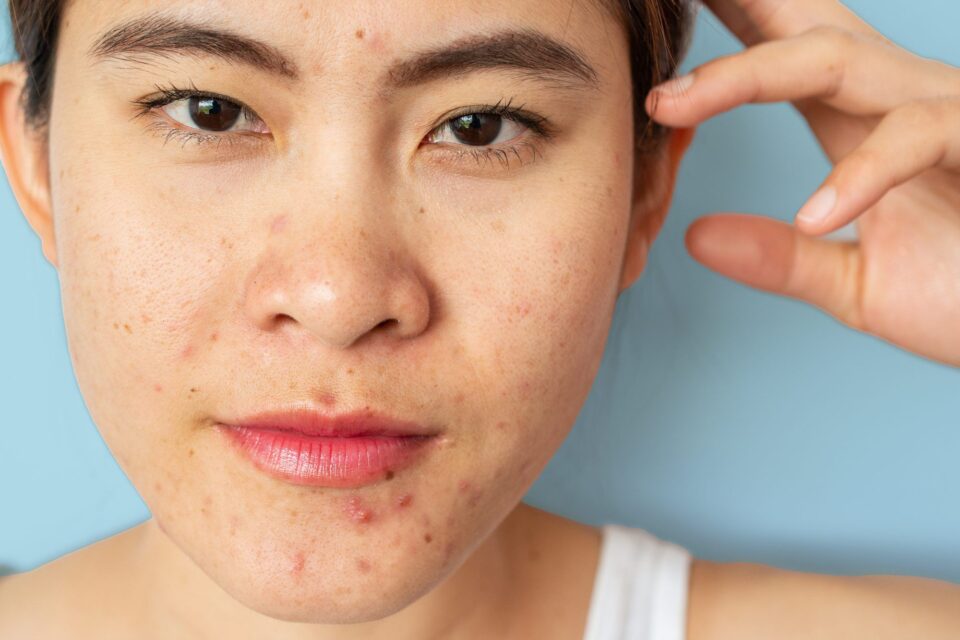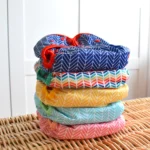The development and presence of acne is something that’s usually contributed to teenagers and those going through puberty, though acne can occur at any age. Individuals who are older can experience a different kind of acne, hormonal acne.
What is Hormonal Acne?
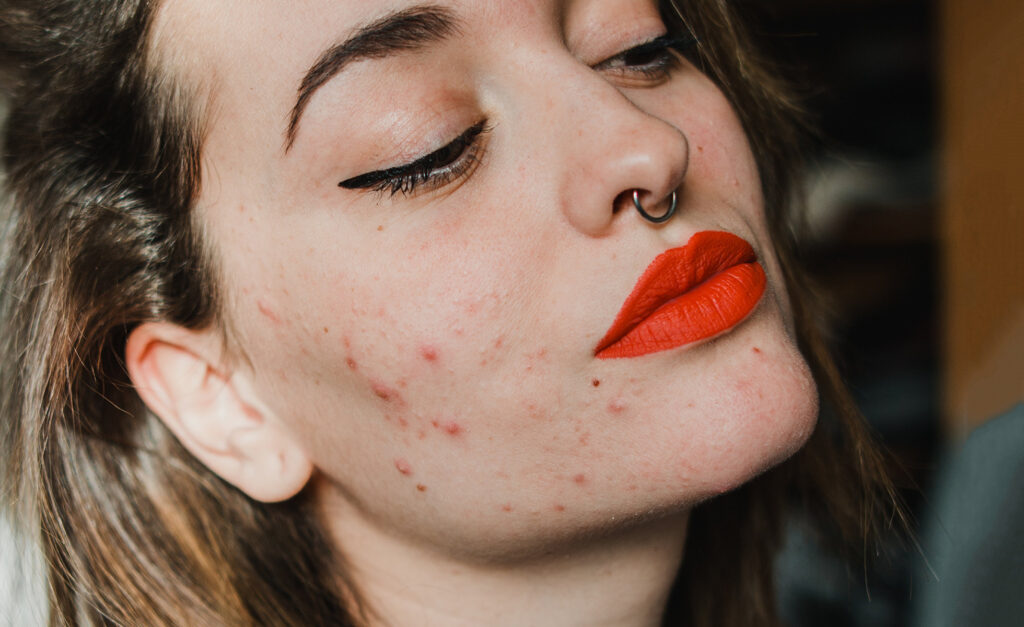
Hormonal acne is tied to fluctuations in hormones, and it is also referred to as adult acne. It can affect individuals between the ages of 20 and 50. It can form along the face, chest, shoulders, and back and can present itself as the following:
- Blackheads
- Whiteheads
- Pimples
- Cysts
Hormonal acne can affect both men and women, but mainly women are affected by it because of the different stages in their lives where hormone levels can fluctuate. While acne can sometimes cause embarrassment in an individual, it is the most common skin condition within the United States, affecting nearly 80% of the entire population throughout their lifetime. Close to 50% of young women in their twenties get hormonal acne.
Causes
There isn’t just one factor that contributes to hormonal acne, unfortunately. It is caused by clogged pores, which can be the result of:
- Bacteria
- Dead skin cells
- Excess sebum (oil created by the skin)
What We Can Control

There are many other causes of hormonal acne, and some of them we can control, like lack of sleep, stress, and the usage of hair and skin products that aren’t oil-free or contain ingredients that clog pores. These are things we can actively make changes to control.
What We Can’t Control
On the other hand, there are also factors that we cannot control. These factors include:
- Changes in hormone levels for women in instances like periods, irregular periods, menopause, pregnancy, and the discontinuation of birth control.
- Testosterone treatment undergone by men.
- Medication side-effects
- Genetic predisposition
- Pre-existing medical conditions
There are many things that can contribute to hormonal acne, and sometimes we can be brought down by feelings of helplessness. It can be challenging to get rid of, but there are things we can do to help treat and prevent it.
5 Ways to Treat
Luckily, there are many ways to treat hormonal acne, and we’ve selected five great ones for you.
1. Tea Tree Oil
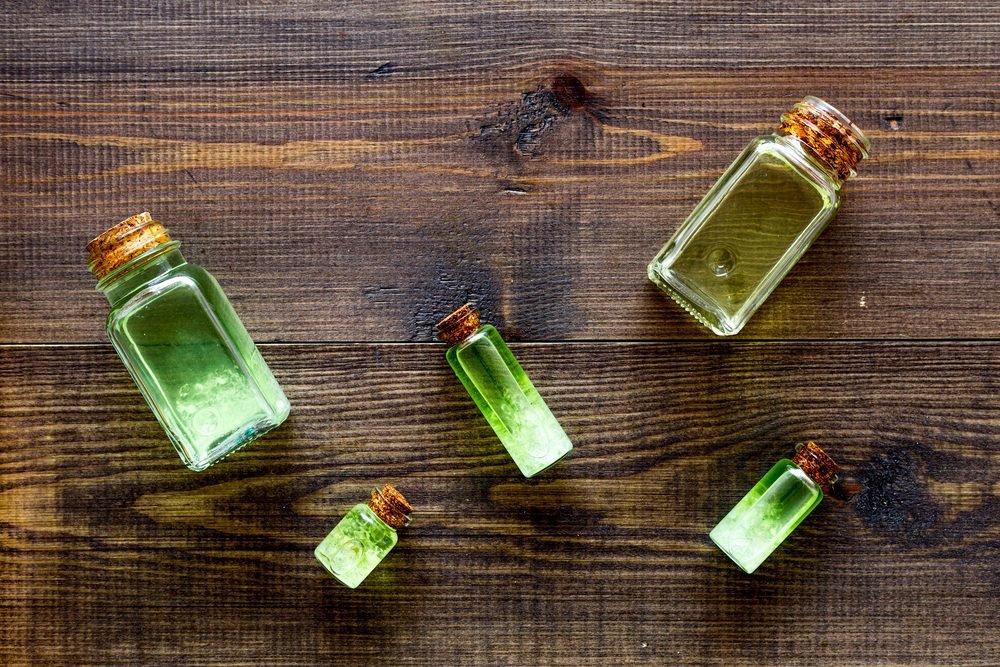
Tea tree oil is a naturally occurring antibiotic that also has anti-inflammatory properties, and it is used in many different products. This oil can potentially attack and eliminate the bacteria that cause acne, P. Acnes. However, products that contain it should only have a 5% concentration because it may irritate the skin.
2. Oral Contraceptives
Oral contraceptives are a great option to treat hormonal acne, and some are used specifically for acne treatment. These contain ethinylestradiol along with one of the following:
- drospirenone
- norgestimate
- norethindrone
But working together, these ingredients target hormones that can contribute to acne and can help regulate hormonal levels. This can prove helpful during times when our hormones peak, like during ovulation.
For some women, oral contraceptives are not a good choice. If you have a history of blood clots, breast cancer, high blood pressure, or smoking, you should not take oral contraceptives.
3. Diet
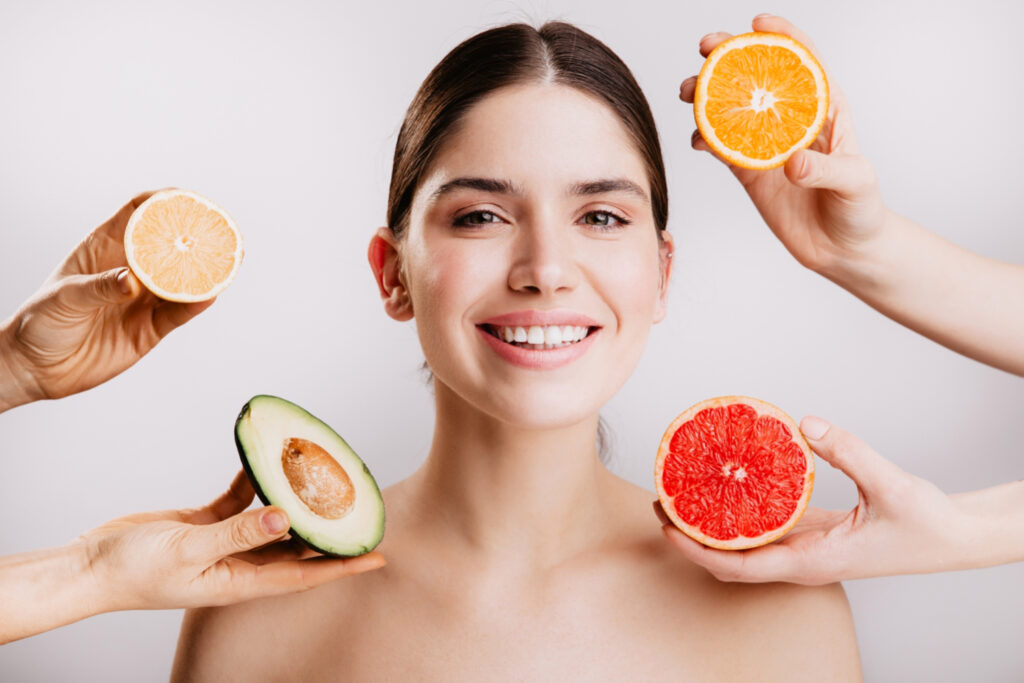
There is no set diet for those with hormonal acne, but individuals can make changes to what they put in their bodies.
Foods to avoid:
- High GI foods: GI stands for glycemic index, and they are foods that are digested and absorbed quickly in our bodies, which causes a fast rise in our blood sugar. Foods that are high up on the GI scale are often foods that have a large number of processed carbohydrates and sugars: these are foods like sugary baked goods, cereal, and candy.
- Chocolate: There is some conflict about whether or not chocolate can cause acne breakouts. Different studies have mixed results. However, since chocolate tends to contain large quantities of sugar, it definitely is considered a high GI food and has the possibility of promoting acne breakouts.
There are also foods one should add:
- Low GI Foods: Low GI Foods like whole grains, beans, nuts and seeds, and fruits may have benefits for the skin because they have little to no effect on blood sugar.
- Omega-3 fatty acids: Fatty acids impact inflammation levels within our bodies; a diet higher in omega-3 fatty acids can help to lower inflammation. Omega-3 can come from fish, like salmon and mackerel, along with nuts, seeds, and fish oil supplements.
- Antioxidants: Antioxidants help heal breakouts and soothe irritation caused by regular acne and hormonal acne, along with other benefits. Antioxidants can be found in fish, seafood, beef, red grapes, leafy greens, green tea, and many other food products.
4. Green Tea
Studies have shown that green tea is a great way to fight hormonal acne. The epigallocatechin-3-gallate (EGCG) present in green tea can help reduce inflammation and fight against bacteria, which is one of the reasons why many people choose to drink it. It may also be useful for those who are fighting P. acnes because of its anti-inflammatory effects.
Start by brewing the tea for a few minutes, then allow it to cool. You can apply it to your face in two ways; either by spraying it with a spray bottle or dabbing it with a cotton ball. Leave the tea on your skin for 10 minutes, or overnight if you prefer; just rinse your face with cool water afterward. You can also drink the tea, though it may not be as effective.
5. Retinoids
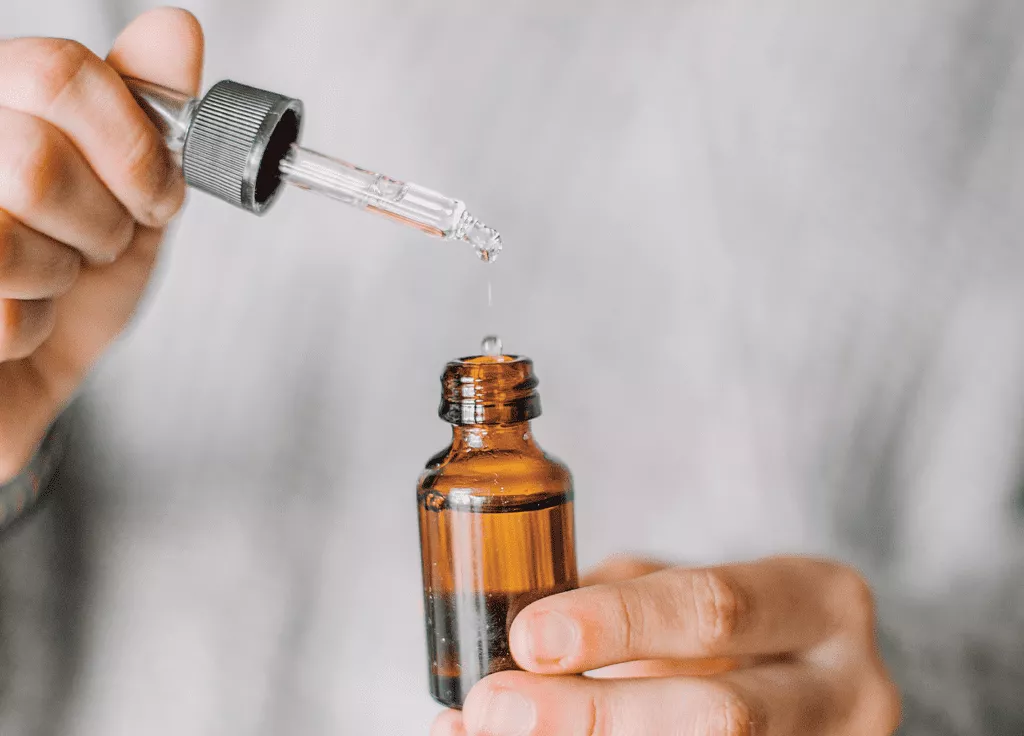
If you have mild hormonal acne, topical retinoids are a great option to use because they are derived from vitamin A. This vitamin can be a very effective way to reduce and diminish hormonal acne, acne scars, and signs of aging. Keep in mind that retinoids can increase the risk of sunburn, so be sure to apply sunscreen when using them.
Other Things to Do
It’s very important to establish a skincare routine in order to clear up your hormonal acne and maintain clear skin. When choosing a routine or brand, make sure you select skincare designed to treat hormonal imbalances.
- Wash your face twice a day with warm water, in the morning and in the evening.
- Wear sunscreen every day, no matter the weather.
- Use products that will not block your pores.
- Apply very little product to avoid drying out the skin.
Now that you know what hormonal acne is, its causes, and ways to treat it, you’re a few steps closer to ridding yourself of unwanted acne.

